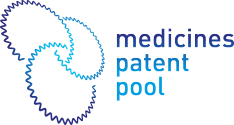Medicines Patent Pool Announces First Licensing Agreement with a Pharmaceutical Company
12 June 2011
Pool Signs Licences to Increase Access to HIV/AIDS Medicines
LONDON, 12 JULY 2011: The Medicines Patent Pool and UNITAID today announce the first agreement between the Medicines Patent Pool and a pharmaceutical company – Gilead Sciences – to improve access to HIV and Hepatitis B treatment in developing countries.
This press release is also available as a PDF here.
The agreement allows for the production of the HIV medicines tenofovir, emtricitabine, cobicistat, and elvitegravir as well as a combination of these products in a single pill known as the “Quad.” Cobicistat, elvitegravir and the Quad are products still in clinical development. The licence also allows for the development and manufacture of other combinations that include these medicines. Tenofovir is also licenced for use in Hepatitis B.
“Today marks a milestone in managing patents for public health. The licence agreement with Gilead Sciences will help make medicines available at a lower-cost and in easier to use formulations without delays,” said Ellen ‘t Hoen, executive director of the Medicines Patent Pool. “In particular, the licensing of elvitegravir, cobicistat and the Quad while they are still in clinical development should significantly accelerate availability. People in developing countries often have to wait for years before they can access new health technologies. Today’s agreement changed that.”
“We believe the Pool is an innovative mechanism to increase access to patented medicines in a way that works for the pharmaceutical industry and people living with HIV,” said Gregg Alton, Executive Vice President, Corporate and Medical Affairs for Gilead Sciences. “We are pleased to enter into this collaboration, and we hope to see the Pool become an effective mechanism for providing access to an increasingly broader range of antiretrovirals to treat HIV in resource-limited parts of the world.”
“UNITAID has worked for four years to develop the Medicines Patent Pool concept. Today we are proud to see that it is becoming a tangible reality,” said Philippe Douste-Blazy, chair of the UNITAID Executive Board. “I salute this first important step by Gilead and urge other pharmaceutical companies to place their intellectual property at the service of global public health.”
“The United Kingdom has been a strong supporter of the Medicines Patent Pool from day one. We welcome the news of their first pharmaceutical company licence. We will continue to support the Pool as an important contribution to ensuring that the largest number of people living with HIV get access to the treatments they need,” said Stephen O’Brien, Minister of International Development for the UK.
Key features of the licence include:
Inclusion of pipeline products cobicistat, elvitegravir, and the Quad: Public health- oriented licensing of products in clinical development is rare and is an important advance in a field where many potentially valuable medicines are still in the developmental phase. This licence will allow for generic versions of new products to enter the market shortly after the products are available in rich countries.
Preservation of key public health safeguards in intellectual property: For example, the agreement preserves the ability of generic companies to supply countries if governments issue compulsory licences. It also waives data exclusivity rights where they exist.
The Pool is committed to promoting transparency in licensing practices and will publish the licences on its website, welcoming feedback and suggested improvements from all stakeholders.
The licence allows for the first time the sale and use of generic tenofovir to cover the treatment of people with Hepatitis B as well as HIV.
Royalties are 3 to 5 per cent of generic sales, with royalties waived for any new paediatric formulations.
Expansion in the number of countries included in the geographic scope as compared to Gilead’s earlier licences. The licences will allow for the supply of tenofovir and emtricitabine in 111 countries, for cobicistat in 102 countries, and for elvitegravir and the Quad in 99 countries. However, the licences do not include all developing countries.
“We will continue to work with Gilead and others to expand access to all people living with HIV in developing countries,” said ‘t Hoen. The Pool is currently in negotiations with 6 other patent holders.
Note for the editor: This release uses the international non-proprietary names for medicines. Tenofovir is marketed by Gilead Sciences under the trade name Viread; emtricitabine is marketed under the trade name Emtriva. Cobicistat and elvitegravir as pipeline products do not yet have trade names.
About the Medicines Patent Pool:
The Medicines Patent Pool, founded by UNITAID in 2010, aims to stimulate innovation and improve access to HIV medicines through the negotiation of voluntary licenses on medicines patents that enable robust generic competition and facilitate the development of new formulations. The Medicines Patent Pool was recently endorsed by the G8 and the UN High Level Meeting on AIDS as a promising innovative approach to improve access to HIV medicines.
About UNITAID:
UNITAID is a global health initiative established to increase access to quality-assured treatments for HIV/AIDS, malaria and tuberculosis through sustainable financing and market interventions. In less than five years since its inception, UNITAID has committed US$ 800 million for AIDS treatment in 52 low- and middle-income countries. UNITAID developed the concept of the Medicines Patent Pool as part of its market strategy, which is to stimulate market competition, ramp up production and increase availability of newer and better medicines at affordable prices. In December 2009, the UNITAID Executive Board[1] voted in principle to create the Medicines Patent Pool, which became a separate legal entity in July 2010.
[1] The UNITAID Board is comprised of representatives from: African Union, Brazil, Chile, France, Norway, South Korea, Spain, United Kingdom, Communities living with the diseases, NGOs, Gates Foundation







